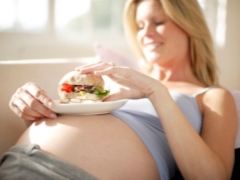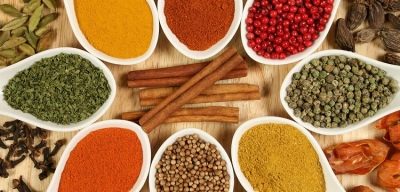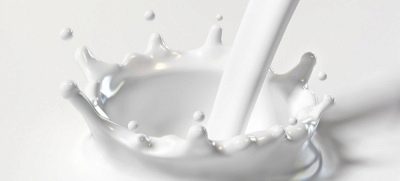What foods can not eat pregnant?
In order for the future mother's health to remain good, she needs to carefully monitor her diet during pregnancy. Many foods during this exciting period of life a woman should not be consumed.
The importance of dieting
In the period of its prenatal development, the baby receives all the necessary nutritional components for its growth from the mother. For many months of pregnancy it is connected with mommy by the general blood flow system.
With food, all the substances necessary for the growth and development of the baby - proteins, fats and carbohydrates. Also, for the flow of biological reactions requires the regular intake of vitamins and minerals.
If the balance of the incoming substances is disturbed or unbalanced for some reason, this contributes to the appearance of various functional disorders in the mother and baby.
Each of the incoming substances has its own function:
- Squirrels are a kind of "builders". They are necessary for the construction of all vital organs and systems in the baby. Their importance is enormous, especially in the first trimester of pregnancy. It is at this time that the child actively occurs the processes of organogenesis (the process of formation of internal organs).
- Carbohydrates - This is the main source of energy. They are needed for the child to grow and develop actively. Many cellular reactions proceed with energy, which is released during the metabolism of carbohydrates. However, balance is important in everything. Excessive intake of carbohydrates into the female body can lead to dysmetabolic disorders. Ultimately, this can manifest itself by a strong weight gain.
- Fat - Another important component of the female diet during pregnancy. They are a kind of "fuel" that the body needs. Also, fats can be called a durable source of energy. They burn very slowly, which leads to the fact that energy is released gradually.
In drawing up the women's menu during pregnancy it is very important that all these components are present in it. This is necessary not only for the health of the mother, but also for the development of her baby.
When consuming a particular product, the expectant mother should remember that he can “get” into the body and to her baby. Most nutrients are absorbed in the intestines. Then, through the arteries, they enter the body to the child.
Protect the child's body from various toxic substances provides the placenta. If this “children's” organ were absent, then it would be very difficult for the kid to cope with the abundance of toxic substances entering his body. The placental barrier protects it from various hazardous substances, but many components still penetrate through it.
These biological characteristics make it necessary to carefully monitor your diet during pregnancy. It is important to remember that all recommendations should be selected strictly for themselves. For example, if the expectant mother has an individual intolerance to any food, then she should exclude them from her diet.
Women suffering from chronic diseases of internal organs, a diet is compiled on the appropriate profile of pathologies. In this case, they should formulate their diet in a comprehensive manner, relying on a therapeutic diet, which was prescribed by the attending physician.
It is important for the future mother to remember that during the carrying of the baby her body begins to experience a significant load. Are no exception and organs of the digestive system.
Such a load can even lead to the fact that during pregnancy a woman can aggravate chronic diseases of the gastrointestinal tract. In order to avoid this, expectant mother should eliminate dangerous foods and enrich their diet useful.
What should be limited?
All consumed food can be divided into several conditional categories. Carefully consider products that should be limited. This does not mean that they can not be eaten. In this case, you should simply significantly limit their amount in your diet.
Fatty Fish
The list of such products begins fatty fish. This product is definitely very useful. It contains a lot of essential fatty acids, especially omega-3.
This substance is involved in many biological reactions in the body, it is necessary for the active growth and development of the fetus. However, it is important to respect the measure in the use of this product. Fatty fish should not be eaten in more than 200-280 grams per week.
If a woman has a tendency to develop allergic reactions, she should always consult with her doctor about the possibility of eating fish.
Cod liver
Also for products whose number should be limited, applies to cod liver. It contains quite a lot of vitamin A. Too frequent use of this product can lead to dismetabolic disorders. To eat this product should be on more than once a month.
Salt
Salt use is an important issue that occurs in almost every pregnant woman. Completely exclude sodium chloride from your diet should not be. However, to monitor its daily dosages is very important:
- At the earliest possible gestational age, up to 10 grams of sodium chloride can be consumed per day.
- By mid-pregnancy, salt is already limited to 7-8 grams.
- In the later stages of carrying a baby is better to limit the use of salt to 5-6 grams per day.
These recommendations are averaged. If a pregnant woman has any diseases of the urinary system and kidneys, then she should use less salt. Also limited to this product in the diet of those women who have a tendency to the appearance of edema.
In drawing up the menu it is very important to remember that table salt is found in many foods. It is also quite a lot in industrially made food - sausages, wieners and sausages. Understanding the importance of the salt content in the diet, many food manufacturers mark on their products how much sodium chloride it contains.
Some experts believe that limiting the amount of salt used in the last weeks before birth can help to improve labor activity. They believe that it can even lead to a reduction in pain during childbirth and the timely opening of the cervix.
Sweets
The changing hormonal background leads to the fact that during pregnancy the expectant mother often wants to eat something sweet. This has a positive effect on her mood, but does not benefit the body at all.
All industrial sweets contain quite a lot of sugar. Abuse of such food can lead to the fact that the level of glucose in the blood can become elevated.It is especially important to monitor the use of sweets for women who have a predisposition to the development of diabetes.
Sweets often contain chemical dyes, preservatives and stabilizers. These substances are harmful and do not bring any benefit to the body. Also, the frequent use of such "snacks" can trigger the development of an allergic reaction in the future mother. Once in the body of the baby, they can lead to the development of his diathesis.
Dyes, preservatives and other chemical additives also adversely affect the functioning of the organs of the gastrointestinal tract. They can provoke an attack of acute gastritis or inflammation of the gastric mucosa.
Caffeinated beverages
The most popular of these is coffee. However, other drinks can be sources of caffeine. So, it is contained in tea, Coca-Cola, some energy drinks.
Caffeine abuse during childbirth is not worth it. If the future mother really wants to drink a mug of coffee, she should stop strictly on one. This amount is enough to wake up the body without harm to the crumbs.
It is better that the coffee is not too strong. You should also carefully monitor the number of drunk mugs. If a pregnant woman has high blood pressure or has heart problems, she should still stop drinking coffee.
Chocolates
You can understand the desire of the future mother to eat this sweetness. The culprit is also often hormones. They contribute to changing the behavior and mood of the future mother.
However, it is always very important to remember how much chocolate you can eat. In this matter, the main thing is not to overdo it. Too much chocolate can also lead to a jump in blood sugar.
It is better to have small portions of chocolate bars - up to 20 grams. If the future mother has a tendency to develop allergic reactions, then she should exclude this product from her menu. An alternative to chocolate in this case may be dried fruit, for which the woman does not have allergies.
What products to use is undesirable?
There are foods that the expectant mother should eat as little as possible. They are not limited in the diet of a pregnant woman, but their number should be closely monitored.
Fat Meat
With frequent use can exert a strong load on the liver and biliary tract. It is especially important to monitor their number of women suffering from chronic diseases of the gastrointestinal organs.
It is better to cook steamed meat, stew or bake. Roasting in butter will not only increase the calorie content of the dish, but will also put additional strain on the liver and gall bladder.
Cooked Sauces
Many ketchup and mayonnaise contain a lot of various synthetic additives. The dyes, preservatives and stabilizers contained in them have a negative effect on the work of the gastrointestinal tract, as well as increase the risk of allergic reactions.
Also in the composition of these products is a lot of sugar and salt. During pregnancy, you should eat more natural products, the number of synthetic additives should be limited.
Spicy seasonings and spices
Too sharp foods during pregnancy is undesirable to use. They can lead to inflammation of the gastric mucosa, which will lead to the development of gastritis in the future mother. Also, the reception of many spices can provoke an allergic reaction, which is extremely undesirable for the fetus.
Abuse of products containing a lot of vinegar, horseradish, mustard, can lead to increased thirst. This in turn will contribute to the appearance of edema on the body.
Fried food
During heat treatment of the oil, substances that are dangerous to the body, called carcinogens, can form, which lead to disruption of the liver and gallbladder. Too many carcinogens increase the risk of mutations in the genetic apparatus. Oil-fried donuts and pies are not the best choice for the expectant mother.
What products are strictly contraindicated?
In each case, the list of prohibited products may be different. It depends on the individual characteristics of the woman and the presence of certain chronic diseases of the internal organs.
If such pathologies are present, then a special therapeutic diet is selected for the woman. She is developed by a doctor who observes the expectant mother during pregnancy.
Alcohol
This forbidden product tops the list of products that should not be used by expectant mothers. Drinking alcohol in the early stages of pregnancy should not be categorically. This can lead to the development of multiple violations of the formation of internal organs in the child.
Ethyl alcohol has a toxic effect on the nervous system. In women who abuse alcohol during pregnancy, the risk of giving birth to babies with vision pathologies and mental disorders is quite high.
Unpasteurized milk
The emphasis in this paragraph is on dairy products that are not manufactured industrially. Milk made in production goes through several stages of heat treatment. This contributes to the fact that all the pathogens in it die.
The use of fresh milk does not give an absolute guarantee that the product will not have disease-causing microbes. The risk of infection with tuberculosis, brucellosis and other dangerous infectious diseases when drinking fresh milk is high enough.
Raw fish and meat
During pregnancy, products that have not undergone heat treatment should be discarded. This should be done again because of the too high risk of infection. Many pathogenic microbes die only when exposed to high temperatures. Moreover, you need to process (cook) a dish for quite a long time.
Doctors advise expectant mothers, who are very fond of sushi, still limit their use during pregnancy. The risk of infection by pathogenic microbes and food poisoning in this case is quite high.
It is better to replace raw fish with cooked. In such a situation, worry about your health and your baby will need much less.
Forest mushrooms
Many mushrooms that grow near highways or near the city contain many toxic substances. This is because the mushrooms accumulate them like a sponge. Ingestion of large amounts of toxic substances can lead to serious poisoning.
Canned mushrooms can be a source of dangerous infections, such as botulism. In order to get very poisoned, it is enough to eat even a little of such a product.
Croutons, chips
These products contain in their composition a lot of salt. Their use can lead to increased edema on the body. Also in the composition of chips and crackers contains many different flavor enhancers. These substances greatly enhance the appetite, which leads to the fact that the amount of food eaten increases significantly.
The use of these products can also lead to an exacerbation of chronic diseases of the gastrointestinal tract. Spicy seasonings in chips can lead to increased thirst.
Sweet carbonated drinks
There is no benefit from their use for the female and child's body. The flavoring flavors and colorants contained in such beverages contribute to the development of food allergies.
Often in soda contains aspartame (E951).This substance can have an adverse effect on the liver, as well as provoke increased gas formation and swelling.
Homemade fruit drinks and fruit drinks made from berries and dried fruits will be the best alternative to sweet soda.
The fact that you can not eat during pregnancy, see the following video.






























